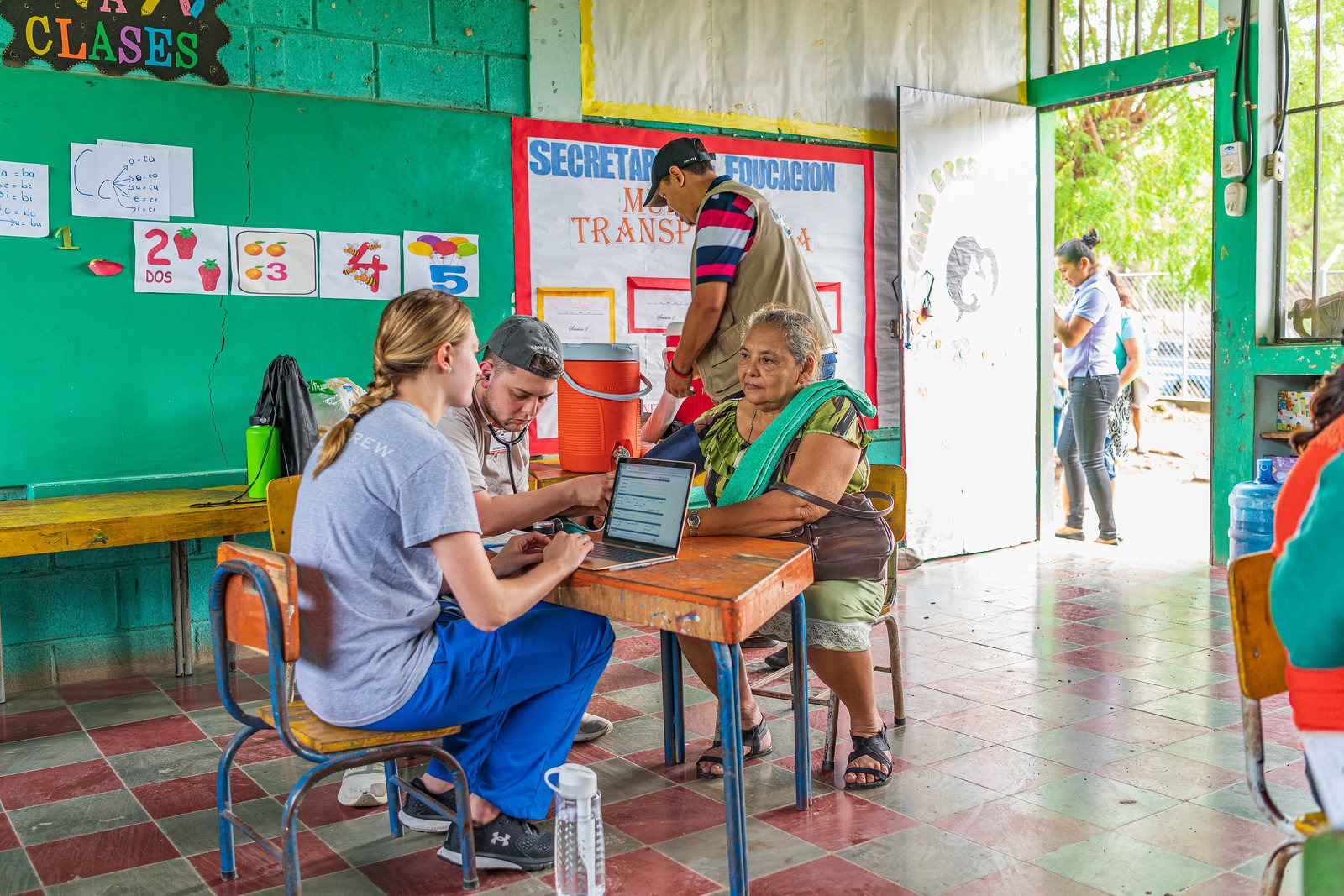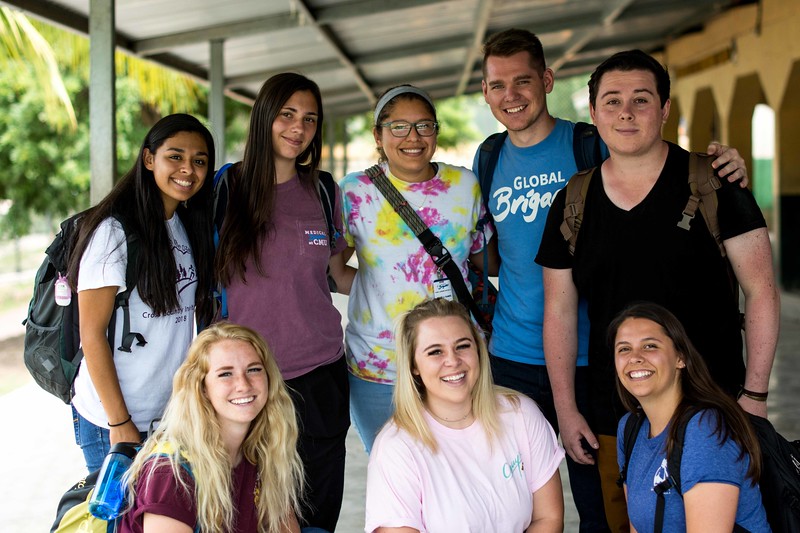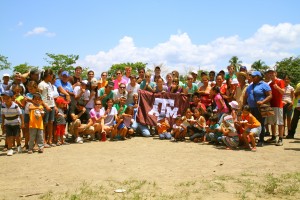Maybe you’ve known you wanted to be a doctor since high school, or maybe you realized it on brigade! However you made the decision, here you are, on the journey of getting into medical school. That means it’s time for the Medical School Application Process (dun dun dunnn!).
Applying to medical school can be extremely daunting. You’re no doubt thinking about MCAT scores and GPA, gathering letters of recommendation, and seeking advice from your mentors.
Hopefully, your years of coursework, volunteering, and commitment to the things you care about have made you a well-rounded person — and a great future physician.
How you write about your experiences will allow the admissions committee at each school to understand not just what you did, but why you did it and how it has impacted you.
With this in mind, we’ve put together a list of tips for talking about your brigade on your medical school application.
Learn about how we’re the largest student-led movement for global health.
1. AAMC Resources Are Your Friend
The Association of American Medical Colleges (AAMC) has great resources as you prepare to fill out your AMCAS application. Even if you are not applying to US medical schools, check out their list of Core Competencies for applicants.
Reflecting on your brigade experience as you look over the list of competencies can give you great insight into what skills to focus on in your essay. What leadership roles were required of you? Were there any stories that stood out from your clinical experience?
Some great areas we think Global Brigades fits well into are Service Orientation, Cultural Competence, and Teamwork. Depending on your role on the brigade and in your Chapter, your experience may fit into the new 2024 category of “Social Justice/Advocacy.”
Intentionally focusing on a competency that resonates with your brigade experience will help you stay on track as you write. Make sure you demonstrate the skills that medical schools are looking for in medical students.
2. I Know What You Did, but What Did You Learn?
You had an awesome time on brigade — we know, we did, too! However, medical schools want to hear about more than a list of your activities and how you spent your time in the programming country.
Medical school admissions committees are seeking bright, curious undergrad students who evaluate and critically reflect on their experiences.
They want to see that you didn’t just spend 3 days building a hygiene station. They want to see how through your time being with a family, you learned about a new culture… or perhaps, how you gained a deeper understanding of community and grew your passion for sustainable solutions.
Make sure that you don’t get so caught up rehashing the itinerary that you miss how the brigade uniquely impacted you.
3. Steer Clear of Heroics
There is a close eye right now on the ethics of international volunteer programs. Global Brigades involves volunteers in a way that leverages sustainability and partnership, but the admissions committee may not know this unless you tell them.
As a GB volunteer, you are a small part of a much bigger picture — and that is what makes your time volunteering with GB so unique! Make sure you convey this by portraying community members respectfully, and not writing yourself in as the savior of the story.
In GB, we value every volunteer, staff member, and community partner. We know this work wouldn’t be possible without the dedication and collaborative effort of all involved.
4. Be Specific, Bob!
Admissions committees have read way too many generic stories. Grab their attention with specific examples of moments on the brigade that gave you new insights. Don’t fall into the trap of simply saying “I learned how to better connect with patients” — show them how that happened!
Did you have a great moment where you bonded with a patient in the clinic over your love of dogs? Tell them about it! Then, use that experience to highlight the importance of connecting with patients on a personal level.
5. Put Your Money Time Where Your Mouth Is
We know your projects had an impact on communities that lasted much longer than your brigade. Hopefully, the personal impact lasted a lot longer, too!
Did your brigade inspire you to join your chapter’s executive board? Do more community service? Take Spanish or global health classes? Add a minor in public health?
It’s great to say that you learned from your brigade, but it’s much more convincing to show with your actions and time how your brigade impacted you.
Think about how your brigade changed your commitments and priorities or inspired you to pursue particular health professions and specialties. Then, make sure whoever reads about your experience can see your commitment reflected in your practical life choices.
6. Be True to You
Worried your Engineering Brigade won’t support your medical school application? Fear not, it definitely will! Admissions committees can sniff out a cookie-cutter application better than I can smell when my roommate is making snickerdoodles.
Be true to yourself and your unique interests and experiences. An activity doesn’t have to involve patients for it to make you a better physician. Look back at the AAMC competencies.
Your engineering brigade might have taught you a lot about listening to community needs or critical thinking, both crucial traits of any healthcare provider. There is no “perfect application” for medical school, so do what you love! Your passion will be appealing and apparent in your writing.
7. Be Genuine
This goes right along with being true to yourself. Don’t make your brigade out to be something it wasn’t for you!
Maybe for your friend, going to Honduras on brigade inspired her to change her major from Neuroscience to Public Health (yup, this was me). But if this isn’t your story, don’t feel pressured to make your brigade into a life-altering moment it wasn’t.
Maybe for you, your brigade simply exposed you to a new patient population or helped you understand more about economics in rural communities. Those insights are important!
Not every experience you include in your essays has to be earth-shattering. So just be honest. Each of the small lessons you learned from all your activities adds up when your application comes together.
FAQs
What is a medical brigade? A medical brigade is a group of largely pre-med students who travel abroad to work alongside local doctors to conduct clinics in under-resourced communities. The Global Medical Brigades Chapter’s 7-9 day participation enables year-round medical services in partner communities where residents may otherwise have little to no access to healthcare.
What are the benefits of being in a medical brigade? Joining a medical brigade offers the benefits of gaining hands-on clinical experience, contributing to community partners, and developing cultural competence while building a strong foundation for a future medical career.
How do you stand out in medical school applications? To stand out in medical school applications, highlight your unique personal qualities or experiences that demonstrate your commitment to the field of medicine. For instance, talk about your brigade!
How should I talk about my brigade experience during medical school interviews? Just as you would when discussing it in your personal statement or on the Work & Activities section, speak honestly and respectfully about your brigade and experience participating in a Brigade Chapter. Here are a few tips:
- Use empowering language about the communities you partnered with. There’s a reason we don’t go on “mission trips” or talk about “serving” communities — these words, while not malicious, are also not empowering to the partner communities and their citizens. Don’t fall into traps of using white saviorism concepts to discuss this experience.
- Highlight what you learned that has better prepared you for a medical career. This may include examples like new cultural competencies or firsthand shadowing experience that taught you something new about patient care.
- Discuss the sustainable, long-term commitment you made as part of a Brigade Chapter. Anyone can travel for a week, but it’s far more compelling to an admissions committee to learn that you made a sustained effort.
You’ve Got This!
As you reflect on your brigade to complete your application, we’d love to see you post about your experience on social media with your #MyGBStory. Once you’re accepted, tag @globalbrigades and #MyGBStory in a post on your Instagram story with a photo from your brigade and the name of your future medical school!
Partner with the work being done on the ground — join a brigade!




